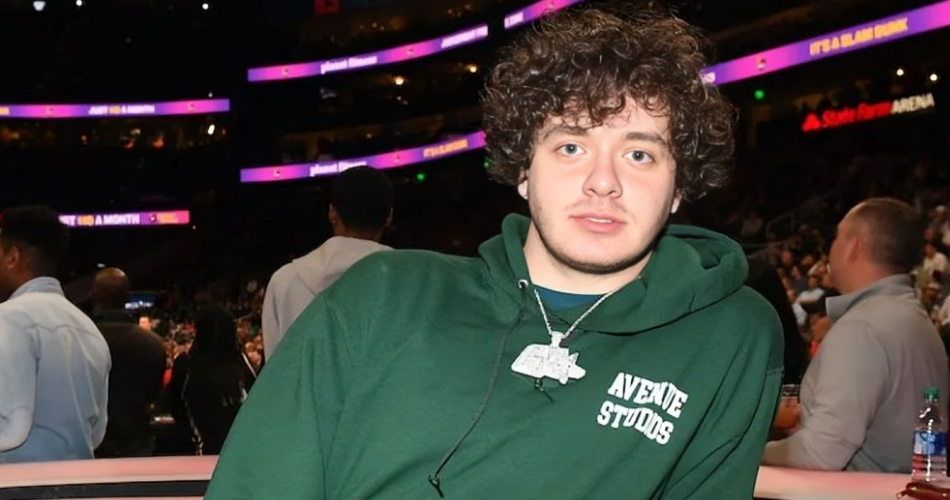Who Is Jack Harlow?
Jack Harlow, a name synonymous with contemporary rap, has captivated audiences around the world with his catchy beats, clever wordplay, and magnetic personality. As one of the most recognized faces in modern hip-hop, Harlow’s success is not only a testament to his talent but also to his unique background. His journey from a Louisville native to an international star reveals a multifaceted individual whose heritage, music, and influence are intrinsically connected. In this article, we’ll explore the nuances of Jack Harlow ethnicity, how it shapes his music, and how his cultural roots continue to impact his career.
Early Years and the Roots of Jack Harlow’s Ethnicity
Born on March 13, 1998, in Louisville, Kentucky, Jack Harlow grew up in an environment that nurtured creativity and diversity. His ethnicity plays a significant role in his identity, influencing both his music and his approach to the rap genre. Harlow, who primarily identifies as White, has European roots, with his heritage tracing back to France and Ireland. This rich European background has contributed to his multifaceted identity and provides him with a distinct lens through which he views the world and creates his art.
Louisville, where Harlow was raised, is known for its cultural diversity and vibrant music scene. From a young age, Harlow was exposed to various musical genres, which helped shape his unique sound. This exposure to a melting pot of influences has allowed Harlow to incorporate a wide array of musical elements into his work. His ethnicity, along with his upbringing in Louisville, has significantly impacted his musical style, making him a standout figure in a genre that has traditionally been dominated by Black artists.
Jack Harlow’s Rise to Fame: A Blend of Talent and Authenticity
Jack Harlow’s ethnicity might play a role in his identity, but it is his raw talent, authenticity, and respect for the culture that have defined his career. Harlow’s rise in the rap world began when he was just a teenager. At the age of 12, he started rapping, using a Guitar Hero microphone and a laptop to record his first songs. This early dedication to music paid off when he released his first EP, The Handsome Harlow, in 2015. This marked the official beginning of his music career, showcasing his lyrical talent and ambition.
Over the next few years, Harlow’s ethnicity and his Louisville roots became integral parts of his story. The rapper built a loyal fanbase in his hometown, performing at local venues and steadily gaining recognition. In 2018, Harlow signed with Generation Now, an Atlantic Records imprint, paving the way for his national breakthrough. That year, his career took a major leap forward with the release of his mixtape Confetti, which featured collaborations with notable artists like Bryson Tiller.
However, it wasn’t until 2020 that Harlow truly broke into the mainstream. His single “WHATS POPPIN” went viral, earning him widespread acclaim and a Grammy nomination for Best Rap Performance. The success of this track catapulted Harlow into the limelight, solidifying his place in modern hip-hop. His debut studio album That’s What They All Say, released in late 2020, further showcased his versatility as an artist, blending rap with elements of pop and R&B.
The Influence of Jack Harlow’s Ethnicity on His Music
As a White artist in a genre deeply rooted in Black American culture, Jack Harlow has often addressed the complexities of his ethnicity and position within hip-hop. While his ethnicity could be seen as an anomaly in the genre, Harlow has consistently shown respect for the roots of hip-hop, acknowledging the significant influence of Black artists on his music.
In interviews, Harlow has spoken candidly about navigating the challenges of being a White rapper in a space where Black artists have historically been the dominant voices. He recognizes his privilege and the advantages that come with being a White artist in the music industry. This awareness has led him to be more mindful of the social and political dynamics that surround race and culture in hip-hop. Harlow has used his platform to address issues such as racial inequality, showing support for movements like Black Lives Matter and advocating for greater representation in the industry.
Harlow’s music reflects this consciousness, with lyrics often delving into themes of identity, privilege, and the intricacies of navigating the world as a White artist in a predominantly Black genre. His work is not only a reflection of his personal experiences but also an invitation to discuss the complexities of race, culture, and representation in hip-hop. Harlow’s openness about his ethnicity and the broader societal issues surrounding it adds depth and relevance to his music, making it resonate with a diverse audience.
Jack Harlow’s Cultural Influence: Beyond His Music
Jack Harlow’s influence extends far beyond his music, as he continues to shape cultural conversations around race, privilege, and representation. While his ethnicity plays a role in shaping his perspective, it is his willingness to engage with cultural and social issues that sets him apart from many of his peers in the rap world.
Harlow’s ethnicity and cultural identity are intertwined with his sense of responsibility to use his platform for good. His activism, particularly in support of racial equality and social justice, has been a significant part of his public persona. He has spoken out on issues like police brutality, systemic racism, and the need for greater inclusivity in the music industry. By using his success to advocate for change, Harlow demonstrates that being an artist is not just about making music—it’s about using that platform to amplify important messages.
Moreover, Harlow’s impact on popular culture is undeniable. His sense of style, social media presence, and collaborations with artists from various genres have helped redefine what it means to be a modern-day rapper. His ability to blend different influences into his music and personal brand has made him a cultural force, one who is redefining the boundaries of hip-hop and expanding the genre’s reach to new audiences.
Decoding Jack Harlow’s Ethnicity and Its Role in Hip-Hop
As a White artist in the predominantly Black world of hip-hop, Jack Harlow has had to navigate the delicate balance of staying true to his roots while respecting the culture that shaped the genre. This unique position has led to numerous discussions about race, opportunity, and authenticity in the world of hip-hop.
Harlow’s ethnicity plays a crucial role in these discussions, as his success as a White rapper has sparked conversations about the evolving landscape of hip-hop and what it means to be an artist in the genre today. While some may argue that his ethnicity gives him an edge in the industry, Harlow has remained humble, acknowledging the work of those who paved the way before him. His awareness of the historical context of hip-hop and his willingness to engage with the genre’s origins has allowed him to carve out a unique space for himself.
At the same time, Harlow’s success as a White rapper has opened up opportunities for broader conversations about race in the music industry. His rise to fame highlights the growing inclusivity of hip-hop, a genre that continues to evolve and embrace artists from all walks of life. In many ways, Harlow’s ethnicity has become a symbol of how hip-hop is moving beyond traditional boundaries, embracing diversity and welcoming new voices into the fold.
Jack Harlow’s Music: A Fusion of Personal Background and Cultural Influence
One of the most striking features of Jack Harlow’s music is the way he blends his personal background with his cultural influences. His upbringing in Louisville, Kentucky—a city with a rich cultural heritage—has given him a unique perspective on music, identity, and race. Harlow’s ability to incorporate various musical influences into his tracks is a testament to his versatility as an artist. From his early mixtapes to his mainstream hits, Harlow has demonstrated an ability to weave together different genres, including hip-hop, R&B, pop, and even country.
This eclectic approach to music can be seen in his collaborations with artists from various genres, which have further enriched his sound. From working with hip-hop legends like Lil Nas X to collaborating with pop stars, Harlow has shown that he is not confined to one musical style. His willingness to experiment with different sounds and genres has helped him carve out a distinctive place in the music industry, one that reflects both his personal background and the broader cultural landscape.
Harlow’s music often explores themes of identity, success, and the complexities of navigating a world where race and privilege play a significant role. His ethnicity is an integral part of this exploration, as he uses his position as a White rapper to delve into issues of race, privilege, and authenticity. This willingness to address these themes head-on has made his music resonate with a wide audience, both within and outside of the hip-hop community.
Conclusion: The Lasting Legacy of Jack Harlow’s Ethnicity
Jack Harlow’s ethnicity, rooted in his French and Irish heritage, plays a significant role in shaping his identity as an artist. However, it is his talent, authenticity, and respect for hip-hop culture that have defined his career. At just 26 years old, with an estimated net worth of $5 million in 2024, Harlow’s journey serves as a testament to the power of diversity in music and the importance of embracing all aspects of an artist’s identity.
Harlow’s success story highlights how ethnicity can enrich the music scene, bringing fresh perspectives and inclusive themes to the forefront. His rise in the rap world shows that while ethnicity may shape an artist’s worldview, it is their skill, creativity, and ability to connect with audiences that ultimately determine their place in the industry. As Harlow continues to evolve as both an artist and an individual, his influence on the music industry and beyond will undoubtedly leave a lasting legacy, one that celebrates the diversity of hip-hop and its ability to bring people together.
FAQs About Jack Harlow’s Ethnicity and Career
- What is Jack Harlow’s ethnicity?
Jack Harlow is of white American descent, with his heritage tracing back to French and Irish roots. While his ethnicity is part of his identity, his music and career have transcended racial boundaries, with a focus on authenticity and respect for hip-hop culture.
- How has Jack Harlow’s ethnicity influenced his music?
Jack Harlow’s ethnicity plays a significant role in shaping his perspective and understanding of the world. While he is a white artist in a predominantly Black genre, he approaches his music with respect and awareness of the culture and history of hip-hop. His lyrics often explore themes of identity, privilege, and the complexities of his position in the industry.
- Is Jack Harlow’s ethnicity a central theme in his music?
While Jack Harlow’s ethnicity is not always the primary theme of his music, it has influenced his approach to the genre. He recognizes the importance of acknowledging his racial background, but his music resonates more with universal themes such as personal growth, success, and navigating the complexities of life.
- How does Jack Harlow’s white ethnicity affect his standing in hip-hop?
Jack Harlow’s ethnicity has sparked discussions about race, privilege, and authenticity within the hip-hop community. As a white artist in a genre primarily rooted in Black culture, Harlow has navigated his career by being respectful and conscious of his place, often emphasizing the influence of Black artists on his work.
- What impact has Jack Harlow’s ethnicity had on his success in hip-hop?
Jack Harlow’s ethnicity has not hindered his success in hip-hop. Instead, it has added depth to his artistry, allowing him to connect with diverse audiences. His music resonates across racial lines, and his ability to blend different genres and cultural influences has made him a prominent figure in the industry.
- Does Jack Harlow acknowledge his privilege as a white artist?
Yes, Jack Harlow is very open about the privileges that come with his white ethnicity. He has acknowledged his position and the advantages it provides in the music industry, often using his platform to amplify voices from marginalized communities and contribute to discussions on racial equality.
Stay informed with the latest news and updates on Vents.co.com


